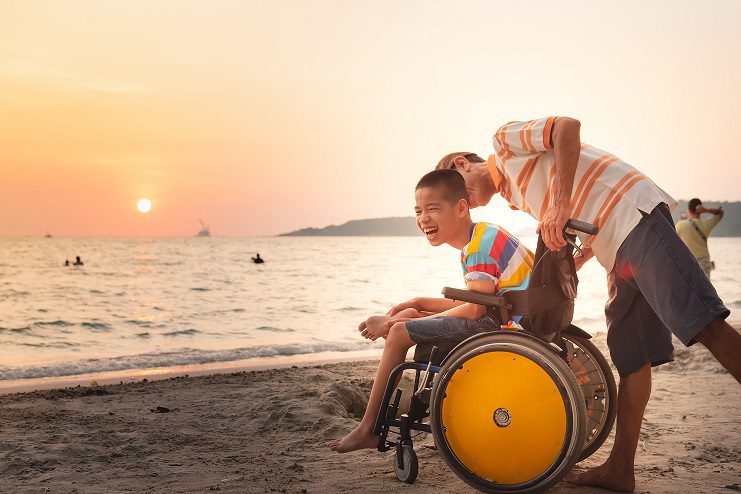 Creating a travel experience accessible for all is one of the most difficult yet rewarding challenges we face in our industry.
Creating a travel experience accessible for all is one of the most difficult yet rewarding challenges we face in our industry.
An accessible and inclusive industry – enabling individuals, regardless of race, ethnicity, ability, or gender identity, to experience different cultures, perspectives, and opportunities – is what all travel companies are striving to achieve.
That’s why our new Global Social Impact & Sustainability Strategy looks to create inclusive pathways for underserved travellers to ensure more people can experience all that travel offers. We will focus a portion of our giving to provide grants to impact-driven organisations working to remove barriers to travel for underserved communities and groups around the world. We are also continuing to increase our capabilities and take more action to create an equitable experience for all travellers, including those with disabilities.
Travel teaches us new things and broadens our horizons. It strengthens connections that create lasting memories, provides opportunities, and helps strive toward greater equality.
Yet historic, physical, and societal barriers often limit equitable access to travel to the more than one billion people with some form of disability (visible and invisible). Overall, disability touches more than 70% of consumers, and according to the World Health Organization, ‘almost everyone will temporarily or permanently experience disability at some point in their life’.
Our latest Inclusive Travel Insights report revealed the ongoing opportunity for significant improvement in creating accessible and inclusive travel experiences for all consumers. The report showed just 52% of consumers had seen options that are inclusive of all types of travellers. And whilst people with disabilities travel more and spend more than the average traveller, they have a more difficult travelling experience than any other under-represented community.
Travellers with disabilities need accurate and accessible information to make informed decisions when booking lodging or transportation, but they often struggle to get that level of information. And nearly two-thirds of travellers (65%) are more likely to book with travel providers offering inclusive and accessible features. Making travel more accessible hinges on ensuring services are usable by the broadest spectrum of people with the most comprehensive possible range of needs.
To that end, Expedia Group recently took action to understand the specific needs and pain points of travellers with accessibility needs to create an improved and equitable travel experience. We have also made accessible filter improvements on our marketplace, expanding filter options to include elevator, roll-in shower, sign-language staff availability, and more, resulting in an 80% increase in accessible filter engagement.
The travel industry has already begun to innovate and provide services that offer more inclusive opportunities for travellers with disabilities – but there is still more to be done. Below are a few best practices travel providers may consider when developing inclusive practices:
-
Offer more complete accessibility attributes by increasing the amount of accessibility content on their website – with photos highlighting suitable options such as step-free entrances or accessible bathrooms – to help guests feel confident that they will be comfortable during their stay and that their accessibility needs can be met.
-
Accessible digital experiences by ensuring that sites and apps can adapt to the specific tools or assistive technologies which users rely upon. Whether a user interacts with a screen using a screen reader, has a motor impairment that inhibits the use of a mouse or touch screen, or requires information in a specific language.
-
Inclusive customer service by enabling travellers with disabilities to engage at every stage of their journey. Staff should be trained with the knowledge, skills, and confidence to react and create an inclusive and accessible experience according to the traveller’s physical, cognitive, intellectual and/or sensory needs.
-
They are creating an inclusive process that hears the voice of travellers with disabilities by seeking feedback, using their knowledge and expertise – empowering them in the creation of accessible products and services so that these meet their needs appropriately.
More details on how to make your property accessible for guests with disabilities can be found here.
Written by: Aditi Mohapatra, Vice President, Global Social Impact and Sustainability at Expedia Group















